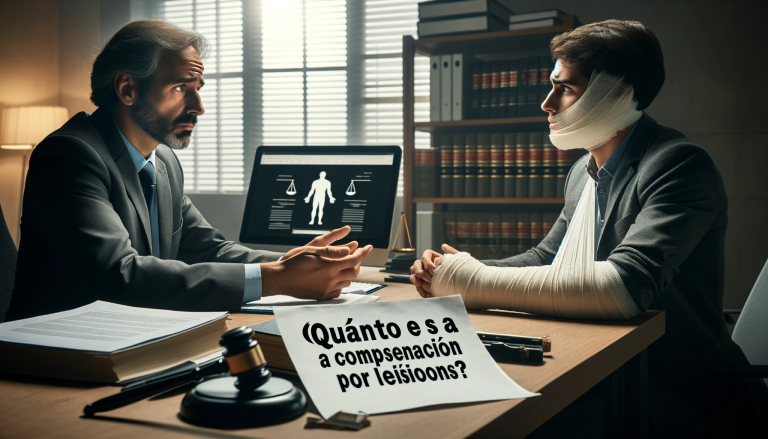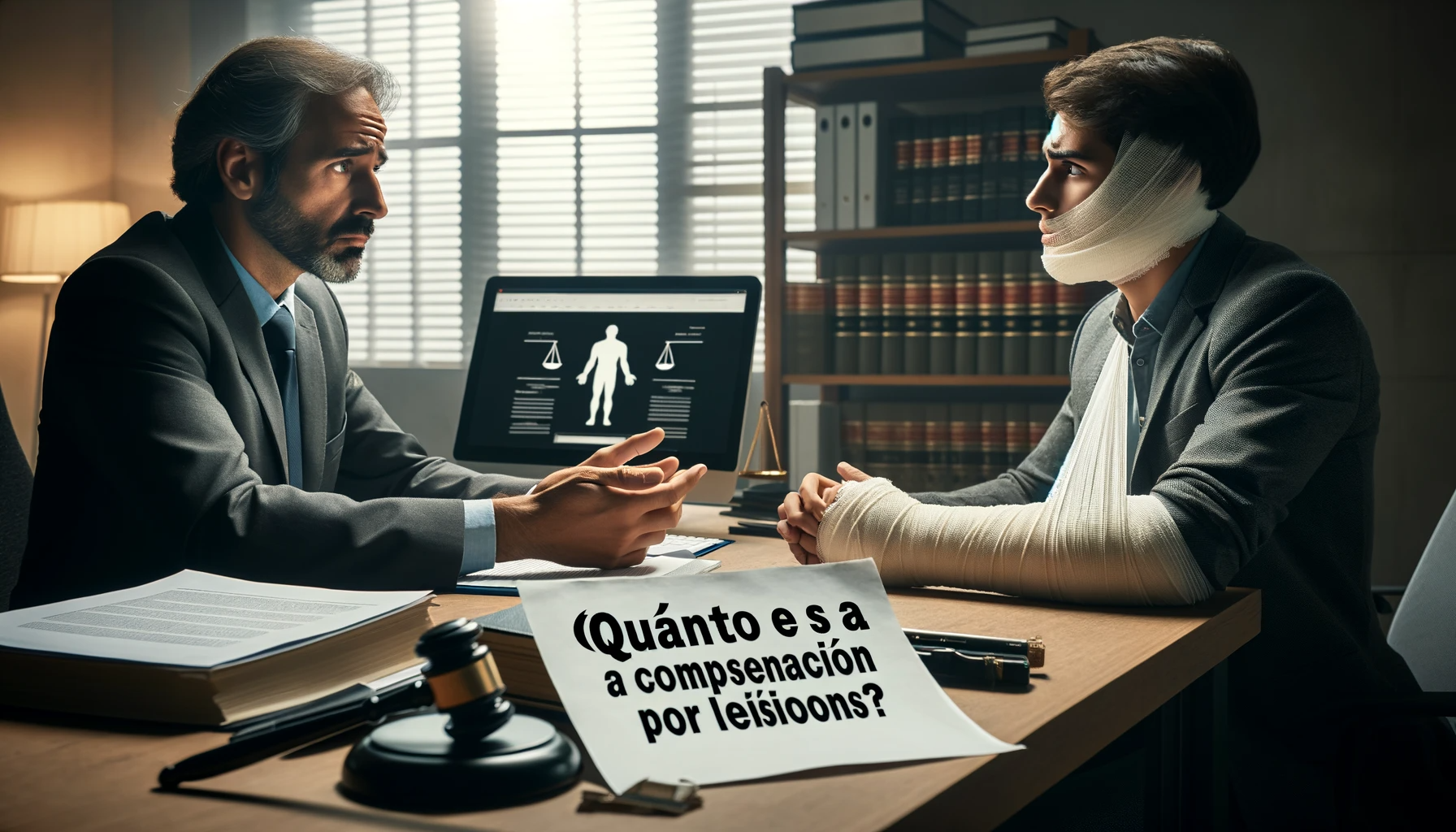Understanding the Basics of Accident Claims
What is an Accident Claim?
An accident claim is a request made by a victim (claimant) for compensation due to losses suffered as a result of an accident. The claim is typically directed towards the individual, entity, or insurance company presumed responsible for the accident. Accident claims can arise from several events, including
Motor vehicle Accidents, slip and falls, workplace mishaps, among others.
Components of an Accident Claim
Accident claims are generally composed of three key elements: liability, damages and insurance coverage. Liability relates to determining who is at fault for the accident. Damages refer to the actual losses experienced by the victim, which may include medical costs, property damage, lost wages, and pain and suffering. The insurance coverage aspect involves determining whether the responsible party has an insurance policy that can cover the claim, and if so, what type and how much coverage is available.

The Process of Filing an Accident Claim
To file an accident claim, you first need to document the incident thoroughly by gathering evidence such as photographs, witness statements, and police reports. Next, communicate with the responsible party or their insurance carrier to notify them about your intent to seek damages. Depending on the claim, you may need to negotiate with the insurance company or potentially proceed to court if a suitable settlement cannot be agreed upon.
Evaluating the Value of an Accident Claim
Understanding how much you could potentially receive from an accident claim can be complex. It depends on a variety of factors, including the severity of injuries, the impact on your ability to work, the cost of medical treatment, the amount of insurance coverage available, and even where the accident happened. In most cases, it's beneficial to consult with a
Personal injury attorney who can help you accurately estimate the value of your claim.
Time Limit to File an Accident Claim
The time limit to file an accident claim, known as the statute of limitations, varies significantly by jurisdiction and type of claim. In some locations, you may have several years from the date of accident or discovery of injury to file a lawsuit, whereas in others, you may only have a few months. It's essential to understand your local laws to avoid missing crucial deadlines.
Evaluating the Severity of the Injury
Assessing the Physical Impact
The immediate physical toll of an accident injury is one of the key factors in determining its severity. This evaluation involves assessing the type and extent of physical injury, including any evidence of broken bones,
Burns, cuts, or other traumatic injuries. It's also important to consider the necessity of medical intervention such as surgical procedures, physical therapy, or long-term medication. Victims with severe physical injuries are usually entitled to higher compensation.
Evaluating the Long-Term Prognosis
This segment of the assessment focuses on the long-term implications of the injury. A severe injury might mean chronic pain or permanent disability, significantly affecting a person's quality of life in the future. Life-changing injuries often attract higher compensation due to the ongoing costs associated with healthcare, home modifications, or sustained care needs.
Investigating Psychologic Effects
Another essential aspect of evaluating injury severity is considering the psychological impact. Emotional distress, depression, anxiety, or post-traumatic stress disorder can be profound effects of an accident. These psychological injuries may not always be immediately apparent; however, they can drastically alter one's way of living and impose additional treatment costs. Therefore, the psychological impact of an injury should not be overlooked in the assessment process.
Measuring the Economic Consequences
Economic loss following an accident should also be taken into account when assessing the severity of an injury. Lost wages from time off work, reduced earning capacity, and medical bills can significantly impact an individual's financial stability. Severe injuries often lead to substantial economic losses, which will increase the value of the claim.
Understanding the Impact on Daily Life
Lastly, how the injury affects the victim’s daily activities is another critical dimension of the evaluation process. An injury might cause significant disruption to a person's daily routines, hobbies, relationships, and overall life enjoyment. This diminished quality of life, often referred to as 'loss of life’s enjoyment,' may be compensable in an accident claim.
Assessing Property Damage after an Accident
After a
Car accident, assessing property damage is an important task that helps to determine how much compensation you may receive for the incident. This assessment generally includes the vehicle's damage and any other personal properties damaged in the crash, such as mobile phones, laptops or other valuables. In this section, we'll guide you through the key elements of assessing property damage after an accident.
Evaluating the Severity of Vehicle Damage
The first step after an accident is determining the extent of the vehicle damage. This includes minor damages like dents and scratches, major ones like busted windows or doors, and severe damages which could affect the vehicle's operational capabilities. Capturing quality photographs from different angles can prove beneficial in providing accurate representation of the damage. An expert automobile mechanic can also give a professional evaluation of repair costs.
Assessing Other Personal Property Damages
Aside from your vehicle, other personal properties may also get damaged during the
Accident. Items like glasses, electronic devices, car seats, or even items of clothing can be included in your claim. It is essential to list these items and their value, capture their photographs after the incident, and if possible, provide receipts or proof of purchase to validate their worth.
Considering Depreciation and Actual Cash Value
While calculating the claim, it's vital to consider depreciation and the actual cash value (ACV) of your vehicle. Insurance companies typically pay out based on the ACV of your vehicle at the time of the
Accident, which could be considerably lower than its purchase price due to depreciation. Consulting a trusted auto valuation source can help determine an accurate estimate of your car's ACV.

Working with Insurance Adjusters
Insurance adjusters play a crucial role in the property damage assessment process. They inspect the reported damage and make an initial offer based on their findings. While they strive to be fair, it's also common for initial offers to be lower than what the claimant may perceive as fair. In such cases, having your own estimates and documentation can prove handy in negotiations. It may also be wise to hire a lawyer if you feel the adjuster’s assessment is unjustly low.
Determining the Economic Impact of the Accident
Evaluating Direct Costs
Direct costs are those that are immediately incurred as a result of an accident. These usually include any immediate medical expenses, such as emergency room visits, operations etc. It also includes the cost of repair or replacement of any damaged property. Careful documentation is crucial for evaluating direct costs, as they form the bulk of the immediate economic impact of the accident.
Quantification of Lost Wages
If an accident results in you being unable to work, either temporarily or permanently, it can lead to loss of income. To determine this economic impact, you would need to calculate the wages lost during the recovery period or due to incapacity to continue with the job. In case of long-term or permanent disability, figuring out a fair financial compensation can be complex and may need expert consultation.
Accounting for Non-Economic Losses
Non-economic losses or 'general damages' can significantly contribute to the overall economic impact of an accident. These relate to less tangible consequences of the accident, such as pain and suffering, loss of companionship, emotional distress, and reduction in quality of life. While challenging to quantify, these damages often constitute a significant portion of the compensation awarded in accident claims.
Factoring in Future Expenses
The future medical expenses and other related costs must not be ignored while determining the economic impact of an accident. This becomes particularly important if the accident causes lasting disabilities. Future medical bills, rehab costs, assistive devices, home care, altered living arrangements, all should be accounted for.
Legal Costs and Fees
Finally, don’t forget to include the legal costs associated with claiming your accident compensation. Depending on the circumstances of your case, this can include attorney fees, court fees, expert testimonies, and more. These costs can significantly influence the overall economic impact of the accident.
Remember, evaluating the true economic impact of an accident is a complex process. It's recommended to seek guidance from experienced professionals, such as
Personal injury attorneys, who can help ensure all factors are properly accounted for in the valuation of your claim.
Role of Insurance in Accident Compensation
Insurance as a Financial Security Net
Insurance plays a critical role in accident compensation by acting as a financial security net. When an accident occurs, the cost of resulting damages, both physical and material, can be overwhelming. This is where insurance steps in. Depending on the policy coverage, insurance can cover a variety of costs ranging from car repairs or replacements, medical expenses, rehabilitation costs, to wages lost during recovery.
Settlement Process in Insurance Claims
The settlement process begins when an insurance claim is filed. The insurance company will investigate the circumstances surrounding the accident and decide fault based on evidence provided. Once the investigation is concluded, if the insured party is deemed not at fault, the company will handle compensation directly with the at-fault party's insurer, reducing the stress and hassle for the insured. However, if the insured party is found to be at fault, their insurance coverage will be used to compensate the other party.
Specific Role of Different Types of Insurance
Various types of insurance play distinct roles in accident compensation. Auto insurance, for instance, often covers vehicular damages and may cover medical expenses depending on the policy. On the other hand, health insurance primarily covers medical costs associated with injuries sustained in the accident, while disability insurance provides compensation for income lost due to inability to work.
How Policy Limits Impact Compensation
The compensation amount one receives after an accident is largely dependent on the limits defined in the insurance policy. These limits set a cap on the maximum payout by the insurance company. Should the damages exceed these limits, the insured party could be responsible for the difference, highlighting the importance of choosing the right policy limits.
Negotiating with Insurance Companies
Negotiating a fair settlement with insurance companies can often be complex and time-consuming. Insurers typically attempt to minimize their payouts; hence, it's important for the claimant to thoroughly document all damages and losses related to the accident. Obtaining legal advice can also be beneficial in helping navigate through this process and securing a fair compensation.
Factors Affecting the Settlement Amount
The Severity of Injuries
The severity or extent of the injuries you sustained from the accident significantly affects the settlement amount. Typically, more severe injuries result in higher medical costs, which in turn may lead to a larger settlement. This is due to the increased potential for long-term effects and disability, the necessity for ongoing care, as well as the impact on the quality of life.
Liability
Another crucial factor in determining the settlement amount is who was at fault for the accident. If it is clear that the other party was entirely responsible, you are likely to receive a higher settlement. However, if you share some of the blame, this can decrease the amount you may receive. This concept is known as comparative or contributory negligence, and laws regarding this vary from state to state.
Loss of Income
If the accident led to a loss of income or earning capacity, it could increase the settlement amount. This includes not only the income lost due to the immediate aftermath of the accident but also if you're unable to work or earn at the same capacity as before the accident. Documenting these losses is vital as it greatly influences the calculation of the final settlement value.
Impact on Daily Life
The way the accident has affected your daily life also plays a significant role in determining a suitable settlement amount. This might include an inability to participate in hobbies, exercise, and other recreational activities, or having experienced psychological trauma and stress after the accident. Such non-economic damages, also referred to as 'pain and suffering', can substantially impact the final compensation figure.
Insurance Coverage Limits
Finally, the insurance coverage limits of the at-fault party can also affect the settlement amount. Even if you have substantial claims, if the responsible party’s insurance policy has a low limit, that may be the maximum you can receive. To protect themselves against such situations, individuals often opt for underinsured or uninsured motorist coverage in their own policy.
Legal Help for a Fair Accident Compensation
To ensure fair accident compensation, one should consider retaining the services of a
Personal injury lawyer or attorney. This is a professional who specializes in cases related to accidents and injuries. They have extensive experience with different cases and have comprehensive knowledge of the laws and regulations associated with personal injuries. They can help you prepare your case, gather evidence, and negotiate with insurance companies on your behalf.
Negotiating with Insurance Companies
One of the many roles a
Personal injury lawyer plays is to negotiate with insurance companies involved. Although insurance companies are mandated to compensate for damages, they often try to reduce the amount paid. A lawyer knows the strategies these companies employ and can counter them effectively, ensuring you receive your rightful claim.
Proving Fault in Accident Claims
To garner a fair compensation, it's crucial to prove that the other party was at fault. This usually requires an array of evidence like police reports, witness statements, photos of the accident scene, and medical reports. A seasoned accident attorney helps in gathering and presenting this evidence, strengthening your case.
Understanding Settlement Offers
Insurance companies often offer a settlement to avoid a court case. Yet, these initial offers might not fully cover all your damages, including potential future costs associated with medical care or lost wages. A
Personal injury lawyer can analyze and advise if the offered settlement is fair and worthy of consideration or if you should pursue a higher claim.
Assistance with Lawsuit Proceedings
If negotiations fail, you may need to bring your case to court. Going through this process can be daunting without legal counsel. An experienced attorney can guide you through every stage of the litigation, from filing the suit to presenting your case before a judge, ensuring that your rights are fully protected throughout.
Conclusion
In conclusion, it's imperative to acknowledge the profound impact accidents can have, often resulting in significant consequences for those involved. However, amidst the challenges posed by accidents, having a comprehensive understanding of one's rights and available avenues for compensation is paramount. This entails not only recognizing the various factors that influence compensation, such as the nature of the accident and typical compensation amounts associated with similar cases, but also understanding how compensation is calculated within the legal framework. Moreover, it's crucial to consider the legal nuances and complexities that may arise, underscoring the importance of seeking professional legal assistance. By proactively engaging with these considerations and seeking guidance from experienced legal professionals, individuals can effectively navigate the aftermath of an accident, safeguard their rights, and pursue the compensation they rightfully deserve.
In essence, navigating the aftermath of an accident requires a multifaceted approach that involves a thorough understanding of legal rights and options for compensation. By being informed about the intricacies of compensation calculations, legal considerations, and the significance of seeking professional legal counsel, individuals can empower themselves to advocate for their interests effectively. Ultimately, this proactive stance not only ensures that individuals are adequately compensated for their losses and damages but also contributes to a more equitable and just resolution of accident-related claims, fostering a sense of justice and closure for those affected.
Look for an attorney who has the right legal resources for your legal needs.
Contact us here on the
Warmuth Law website or through our hotline 888-517-9888.
Frequently Asked Questions (FAQ's)
1. How long do I have to file a Personal injury claim after an accident?
The statute of limitations for filing a
Personal injury claim varies by state and the type of accident. Generally, it ranges from one to six years from the date of the accident. It's crucial to consult with a
Personal injury attorney promptly to ensure compliance with the applicable deadline in your jurisdiction.
2. Can I still receive compensation if I was partially at fault for the accident?
Yes, you may still be eligible to receive compensation even if you were partially at fault for the accident. Many states follow comparative negligence rules, allowing you to recover damages proportionate to the other party's fault. However, the amount of compensation you receive may be reduced based on your degree of fault.
3. What if the at-fault party doesn't have insurance?
If the at-fault party doesn't have insurance, you may still have options for compensation. Depending on your insurance coverage, you may be able to file a claim with your own insurance company under uninsured or underinsured motorist coverage. Additionally, you may pursue legal action against the at-fault party personally, although recovering compensation in such cases can be more challenging.
4. Will hiring a lawyer increase my chances of receiving more compensation?
In many cases, hiring a
Personal injury lawyer can significantly increase your chances of receiving more compensation. Experienced attorneys have the expertise to navigate the legal process, negotiate with insurance companies, gather evidence, and build a strong case on your behalf. They can also advocate for your rights and ensure you receive fair compensation for your injuries and damages.
5. How much does it cost to hire a Personal injury lawyer?
Many
Personal injury lawyers work on a contingency fee basis, which means they only get paid if you win your case. Typically, their fee is a percentage of the compensation awarded, often around 33-40% of the total settlement or judgment. Additionally, some lawyers offer free initial consultations to discuss your case and determine the best course of action without any upfront costs.











